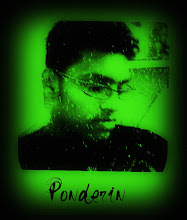Trance denotes a variety of processes, ecstasy, techniques, modalities and states of mind, awareness and consciousness. Trance states may occur involuntarily and unbidden.
The term trance may be associated with meditation, magic, flow, and prayer. It may also be related to the earlier generic term, altered states of consciousness, which is no longer used in "consciousness studies" discourse.....Trance in its modern meaning comes from an earlier meaning of "a dazed, half-conscious or insensible condition or state of fear", via the Old French transe "fear of evil", from the Latin transīre "to cross", "pass over..
WORKING DEFINITIONS
- Enchantment: a psychological state induced by (or as if induced by) a magical incantation
- A state of mind in which consciousness is fragile and voluntary action is poor or missing
- A state resembling deep sleep
- Capture: attract; cause to be enamored; "She captured all the men's hearts"; in the sense of entranced
- A condition of apparent sleep or unconsciousness, with marked physiological characteristics, in which the body of the subject is liable topossession
- An out-of-body experience in which one feels they have passed out of the body into another state of being, a rapture, an ecstasy. In a general way, the entranced conditions thus defined are divided into varying degrees of a negative, unconscious state, and into progressive gradations of a positive, conscious, illumining condition.
- A state of hyper or enhanced suggestibility.
- An induced or spontaneous sleep-like condition of an altered state of consciousness, which permits the subject's physical body to be utilized by the discarnate as a means of expression[disambiguation needed]
- An altered state of awareness induced via hypnotism in which unconscious or dissociated responses to suggestion are enhanced in quality and increased in degree
- A state induced by the use of hypnosis; the person accepts the suggestions of the hypnotist
- A state of consciousness characterized by extreme dissociation often to the point of appearing unconscious.
Trance conditions include all the different states of mind, emotions, moods and daydreams that human beings experience. All activities which engage a human involve the filtering of information coming into sense modalities and hence, brain functioning and consciousness. Therefore, trance may be understood as a matter of functionality and efficiency ~ to economize consciousness resource usage.
Trance states may also be accessed or induced by various modalities and is a way of accessing the unconscious mind for the purposes ofrelaxation, healing, intuition and inspiration. There is an extensive documented history of trance as evidenced by the case-studies of anthropologists and ethnologists and associated and derivative disciplines. Hence trance may be perceived as endemic to the human condition and a Human Universal. Principles of trance are being explored and documented as are methods of trance induction. Benefits of trance states are being explored by medical and scientific inquiry. Many traditions and rituals employ trance. Trance also has a function in religion and mystical experience.
Castillo (1995) states that: "Trance phenomena result from the behavior of intense focusing of attention, which is the key psychological mechanism of trance induction. Adaptive responses, including institutionalized forms of trance, are 'tuned' into neural networks in the brain and depend to a large extent on the characteristics of culture. Culture-specific organizations exist in the structure of individual neurons and in the organizational formation of neural networks."
Hoffman (1998: p. 9) states that: "Trance is still conventionally defined as a state of reduced consciousness, or a somnolent state. However, the more recent anthropological definition, linking it to 'altered states of consciousness' (Charles Tart), is becoming increasingly accepted."
Hoffman (1998, p. 9) asserts that: "...the trance state should be discussed in the plural, because there is more than one altered state of consciousness significantly different from everyday consciousness."


